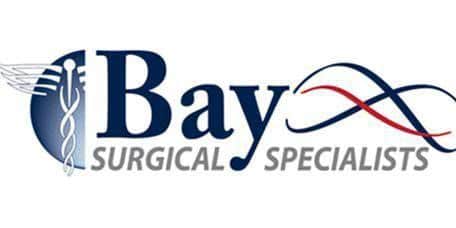Linx
It's time to win the battle against reflux disease
Reflux sufferers, meet LINX® — a revolutionary treatment for reflux. It’s a simple device with life-changing potential. LINX® is intended for patients diagnosed with Gastroesophageal Reflux Disease (GERD) as defined by abnormal pH testing, and who are seeking an alternative to continuous acid suppression therapy. Continue on to learn more about this small device and its results.


LINX® is easy to understand and love because it is simple. The beauty of this quarter-sized device is it does exactly what your failing Reflux Barrier is supposed to do — prevent stomach acid from entering your esophagus.
A simple device with life-changing potential.
Up to 1 in 5 U.S. adults suffer from gastroesophageal reflux disease (GERD).1 Americans suffering from GERD now have a safe and effective treatment alternative.
Current Treatments: Patients need an alternative.
Medications for GERD are designed to control or suppress acid production in the stomach. They do not address the cause of GERD, a weak sphincter muscle, and can’t prevent reflux. Approximately 40% of GERD sufferers continue to suffer symptoms while taking medications for GERD.2
LINX is a revolutionary solution for GERD proven to eliminate dependence on medication and improve quality of life.
Simply designed to be simple.
LINX is easy to understand and love because it is simple. LINX is a small, flexible ring of magnets that opens to allow food and liquid down, then closes to prevent stomach contents from moving up. Simple as that.
LINX is implanted using a minimally invasive procedure and patients generally go home within one day.

GERD: The Backstory
Reflux disease is more than heartburn
Whether you call it heartburn, acid reflux, or GERD, gastroesophageal reflux disease can spell misery for millions of adults in the U.S. Reflux (also called Gastroesophageal Reflux Disease, or GERD) is caused by a weak muscle in your esophagus called the Lower Esophageal Sphincter (LES). The LES is your body’s Reflux Barrier. Normally your Reflux Barrier acts like a one-way valve, allowing food and liquid to pass into the stomach, but preventing stomach contents from flowing back into the esophagus. In people with reflux, the Reflux Barrier allows harmful acid and bile to flow back into the esophagus.
Caused by a mechanical defect and requires a mechanical solution.
Medications for GERD are designed to control or suppress acid production in the stomach. They do not address the cause of GERD, a weak sphincter muscle, and can’t prevent reflux. Approximately 40 percent of GERD sufferers continue to have symptoms while taking medications for GERD.2
Epidemic.
Up to 1 in 5 U.S. adults suffers from GERD.1
Serious.
GERD can lead to serious complications like stricture, Barrett’s esophagus, and esophageal cancer. Adenocarcinoma, a type of esophageal cancer, increased over 700 percent between 1973 and 2006.4
Debilitating.
GERD can cause daily pain, lead to poor sleep, affect food tolerance, and limit daily activities.
Costly.
The cost of GERD to U.S. employers has been estimated at $75 billion per year.5
The United States Food and Drug Administration (FDA) has issued a series of statements on possible side effects of long-term use of Proton Pump Inhibitors (PPI) including: possible fracture risk, low magnesium levels, and clostridium difficile-associated diarrhea.6
1International Foundation for Functional Gastrointestinal Disorders (IFFGD)
2 GERD Patient Study: Patients and Their Medications (AGA Institute)
3Ganz, et al., Long-Term Outcomes of Patients Receiving a Magnetic Sphincter Augmentation Device for Gastroesophageal
Reflux: Clin Gastroenterol Hepatol: Article in Press, published online June 01, 2015.
4Pohl, et al., Esophageal adenocarcinoma incidence: are we reaching the peak? Cancer Epidemiol Biomarkers Prev;
19 (6); 1468-70
5Wahlqvist P., et al. A Systematic review: the impact of gastro-oesophageal reflux disease on work productivity.
Aliment Pharmacol Ther 2006; 24: 259-72
6www.fda.gov/Drugs/DrugSafety/informationbydrugclass/ucm213259.htm
LINX is prescribed by your physician. It is not for everyone. Please talk to your physician to see if it is right for you. Your physician should discuss any potential benefits and risks with you. Although many patients benefit from LINX, results may vary. All surgical procedures carry risk. LINX does not treat gastric or esophageal cancer, Barrett’s esophagus, pain, anxiety or sleep disorders. The LINX® Reflux Management System is indicated for those patients diagnosed with Gastroesophageal Reflux Disease (GERD) as defined by abnormal pH testing, and who continue to have chronic GERD symptoms despite maximum medical therapy for the treatment of reflux. Caution: Federal law (USA) restricts these devices to sale by or on the order of a physician. Contraindications: Do not implant the LINX® System in patients with suspected or known allergies to
titanium, stainless steel, nickel or ferrous materials.
Warnings: The LINX device is considered MR Conditional in a magnetic resonance imaging (MRI) system up to either 0.7 Tesla (0.7T) or 1.5-Tesla (1.5T), depending on the LINX model implanted. Laparoscopic placement of the LINX device is major surgery. General Precautions: The LINX® device is a long-term implant for use in patients 21 years or older. Medical management of adverse reactions may include explanation and/or replacement. Potential Risks Associated with LINX® System: dysphagia, stomach bloating, nausea, odynophagia, increased belching, decreased appetite, inability to belch or vomit, flatulence, early satiety, device erosion, device migration, infection, pain, and worsening of preoperative symptoms. For more information on the LINX Reflux Management System, contact your physician.

